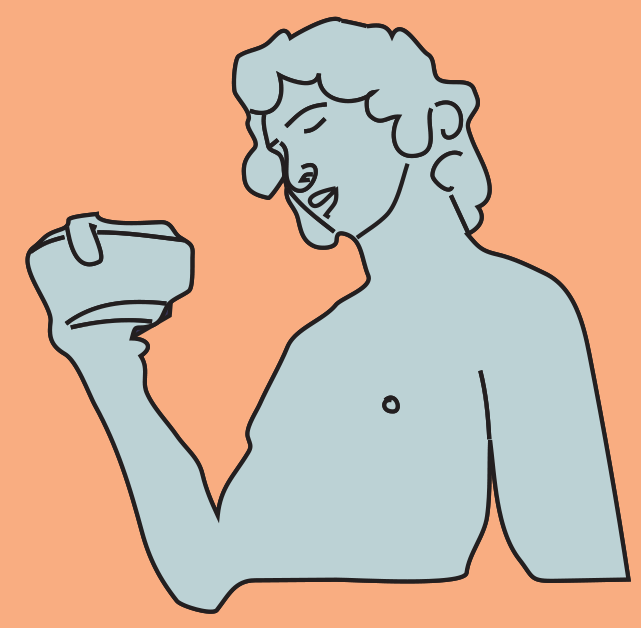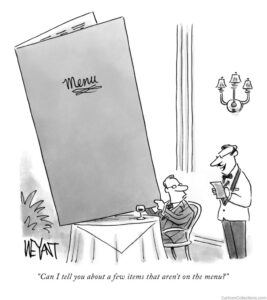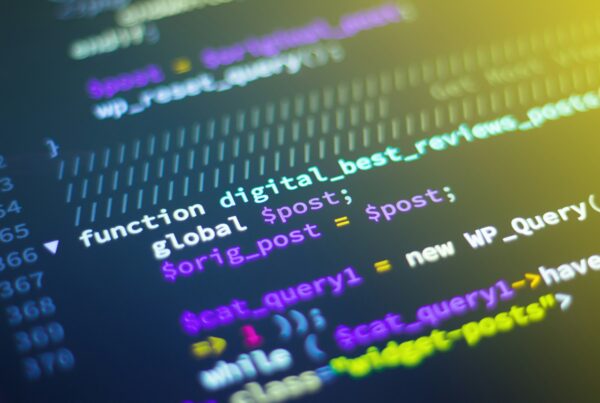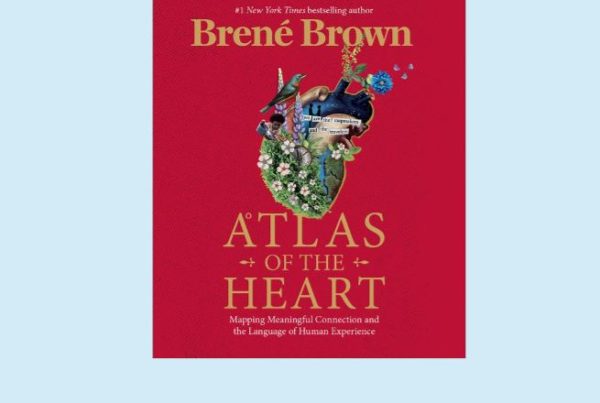
I often find myself walking a tightrope, balancing a set of weights in both hand. One side holds all the things I never did; the choices I avoided; the projects I abandoned, the potential I never lived up to. The other carries the decisions I did make; the hasty ones borne out of impulsivity, fear, or the need to please someone else. I’ve learned that part of growing into yourself is learning to let go: to gently release the versions of your life you once envisioned. Some paths won’t open, some versions of me will never come to life, and that’s okay.
Many of us reading this were lucky enough to be instilled with the idea that we could do whatever we wanted from day 1. In school, we are given the liberty to choose what subjects we want to pursue, what sports teams we want to join, and what after school activities we want to carve out our identity. We graduate feeling like the world is at our feet, like we have endless options, and all we have to do to fulfil our ‘dreams’ is to take the right steps. This sentiment, at the time barely acknowledged by me, was and remains both a blessing and a curse.
Throughout life – but especially in development – we often find ourselves at a crossroad, forced to make choices that will inevitably shape our future. Sometimes, the next step is clear, but in other instances, we feel burdened by the pressure to decide. The elusivity of our choices serves as a sobering reminder that with each decision we make, we potentially render alternative paths obsolete. If you are like me, you’ll take your dear time circling the metaphorical roundabout until your head is spinning (the perfect mental state to make life-changing decisions if you ask me). But, eventually the fear subsides, and a path is chosen.
For the unlucky ones, the mental burden does not end here. Doubt rears its ugly, questioning head. Are you sure you’ve made the best choice? More importantly, how can you ever be sure you’ll feel the same way about it in the future? I am sure you’ve heard of the term ‘paradox of choice’: the bitter reality that having too many options can actually limit our freedom to choose. Maybe you’ve experienced this when ordering at a restaurant with a manifesto-sized menu. With an endless amount of options, it can be easy to feel like there is always something better than what we end up choosing. Word of advice: just order the risotto and move on.
As I sit in front of my laptop staring blankly at my applications, the Dutch word keuzestress – literally ‘choice stress’ – captures what I’m feeling with startling precision. I feel stuck, afraid of committing to a path only to regret it later and unsure whether doing something is better than doing the wrong thing. And so, I try to keep as many doors open as possible. But even that is a decision — and not always the most helpful one.
I’m reminded of Sylvia Plath’s fig tree analogy in The Bell Jar. That deep yearning to do it all, to be everything, only to be paralysed by the impossibility of it:
“I saw my life branching out before me like the green fig tree in the story. From the tip of every branch, like a fat purple fig, a wonderful future beckoned and winked. One fig was a husband and a happy home and children, and another fig was a famous poet and another fig was a brilliant professor, and another fig was Ee Gee, the amazing editor, and another fig was Europe and Africa and South America, and another fig was Constantin and Socrates and Attila and a pack of other lovers with queer names and offbeat professions, and another fig was an Olympic lady crew champion, and beyond and above these figs were many more figs I couldn’t quite make out. I saw myself sitting in the crotch of this fig tree, starving to death, just because I couldn’t make up my mind which of the figs I would choose. I wanted each and every one of them, but choosing one meant losing all the rest, and, as I sat there, unable to decide, the figs began to wrinkle and go black, and, one by one, they plopped to the ground at my feet.”
At the heart of Plath’s dilemma lies keuzestress. But within this paralysis of choice sits a quiet, profound truth: the decisions we make, flawed as they may be, constitute an integral part of the human experience. What matters most is that we choose something, and that we choose it for ourselves. Not for our ego. Not to meet others’ expectations. Not for the person we think we should be.
While I’ll probably never fully shake the weight of “What Now?”, I’ve decided to approach my labyrinth of choices by embracing the inevitability of mistakes and uncertainties along the way. To trust that as long as I am making decisions rooted in honesty and self-respect, I think I may be on the right track, regardless of where I end up. Let’s not forget that in our twilight years, as we sit by the window in our rocking chairs, it is our own reflection that will greet us. In the end, learning to be at peace with the person you wake up to each day might just be the most important choice of all.
I often find myself walking a tightrope, balancing a set of weights in both hand. One side holds all the things I never did; the choices I avoided; the projects I abandoned, the potential I never lived up to. The other carries the decisions I did make; the hasty ones borne out of impulsivity, fear, or the need to please someone else. I’ve learned that part of growing into yourself is learning to let go: to gently release the versions of your life you once envisioned. Some paths won’t open, some versions of me will never come to life, and that’s okay.
Many of us reading this were lucky enough to be instilled with the idea that we could do whatever we wanted from day 1. In school, we are given the liberty to choose what subjects we want to pursue, what sports teams we want to join, and what after school activities we want to carve out our identity. We graduate feeling like the world is at our feet, like we have endless options, and all we have to do to fulfil our ‘dreams’ is to take the right steps. This sentiment, at the time barely acknowledged by me, was and remains both a blessing and a curse.
Throughout life – but especially in development – we often find ourselves at a crossroad, forced to make choices that will inevitably shape our future. Sometimes, the next step is clear, but in other instances, we feel burdened by the pressure to decide. The elusivity of our choices serves as a sobering reminder that with each decision we make, we potentially render alternative paths obsolete. If you are like me, you’ll take your dear time circling the metaphorical roundabout until your head is spinning (the perfect mental state to make life-changing decisions if you ask me). But, eventually the fear subsides, and a path is chosen.
For the unlucky ones, the mental burden does not end here. Doubt rears its ugly, questioning head. Are you sure you’ve made the best choice? More importantly, how can you ever be sure you’ll feel the same way about it in the future? I am sure you’ve heard of the term ‘paradox of choice’: the bitter reality that having too many options can actually limit our freedom to choose. Maybe you’ve experienced this when ordering at a restaurant with a manifesto-sized menu. With an endless amount of options, it can be easy to feel like there is always something better than what we end up choosing. Word of advice: just order the risotto and move on.
As I sit in front of my laptop staring blankly at my applications, the Dutch word keuzestress – literally ‘choice stress’ – captures what I’m feeling with startling precision. I feel stuck, afraid of committing to a path only to regret it later and unsure whether doing something is better than doing the wrong thing. And so, I try to keep as many doors open as possible. But even that is a decision — and not always the most helpful one.
I’m reminded of Sylvia Plath’s fig tree analogy in The Bell Jar. That deep yearning to do it all, to be everything, only to be paralysed by the impossibility of it:
“I saw my life branching out before me like the green fig tree in the story. From the tip of every branch, like a fat purple fig, a wonderful future beckoned and winked. One fig was a husband and a happy home and children, and another fig was a famous poet and another fig was a brilliant professor, and another fig was Ee Gee, the amazing editor, and another fig was Europe and Africa and South America, and another fig was Constantin and Socrates and Attila and a pack of other lovers with queer names and offbeat professions, and another fig was an Olympic lady crew champion, and beyond and above these figs were many more figs I couldn’t quite make out. I saw myself sitting in the crotch of this fig tree, starving to death, just because I couldn’t make up my mind which of the figs I would choose. I wanted each and every one of them, but choosing one meant losing all the rest, and, as I sat there, unable to decide, the figs began to wrinkle and go black, and, one by one, they plopped to the ground at my feet.”
At the heart of Plath’s dilemma lies keuzestress. But within this paralysis of choice sits a quiet, profound truth: the decisions we make, flawed as they may be, constitute an integral part of the human experience. What matters most is that we choose something, and that we choose it for ourselves. Not for our ego. Not to meet others’ expectations. Not for the person we think we should be.
While I’ll probably never fully shake the weight of “What Now?”, I’ve decided to approach my labyrinth of choices by embracing the inevitability of mistakes and uncertainties along the way. To trust that as long as I am making decisions rooted in honesty and self-respect, I think I may be on the right track, regardless of where I end up. Let’s not forget that in our twilight years, as we sit by the window in our rocking chairs, it is our own reflection that will greet us. In the end, learning to be at peace with the person you wake up to each day might just be the most important choice of all.




